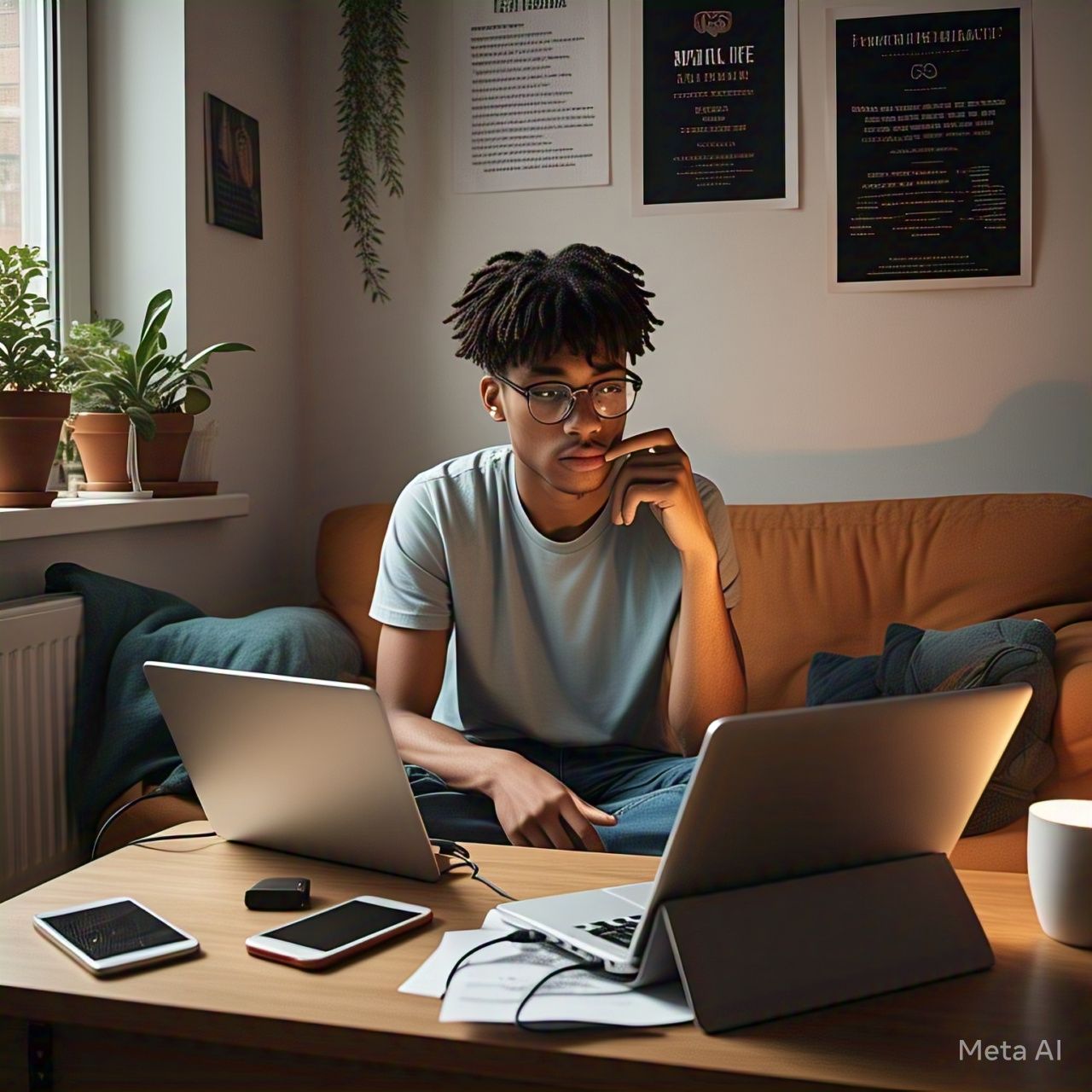Technology is a powerful tool. It connects us, informs us, entertains us — and for many people, it’s essential for work and daily living. But when screens dominate every waking moment, the line between connection and overload gets blurry.
Constant notifications, endless scrolling, and the pressure to always be “available” can quietly impact your mental well-being — increasing anxiety, fatigue, comparison, and even feelings of isolation.
In this article, you’ll learn how to balance your digital life with your mental health, using simple, mindful strategies to create space, clarity, and peace in a tech-heavy world.
Signs Your Digital Life Might Be Affecting Your Mental Health
It’s not always obvious when screen time becomes a problem. But these subtle signs may be telling you it’s time for a reset:
- Feeling drained or overstimulated after time online
- Trouble focusing or completing tasks
- Constantly checking your phone — even without notifications
- Comparing yourself to others on social media
- Difficulty relaxing or falling asleep
- Feeling “on edge” when disconnected
Sound familiar? You’re not alone — and there are small shifts that can help a lot.
1. Create Clear Boundaries With Your Devices
Just like you set work hours or bedtime routines, you can set tech boundaries to protect your mental space.
Try:
- No phones during meals
- Screen-free mornings or evenings
- Turning off notifications for non-essential apps
- Keeping your phone out of the bedroom
These small changes help reduce overstimulation and make room for real presence.
2. Schedule Daily “Offline Moments”
Taking intentional breaks from screens helps your brain reset and reconnect with the real world.
Start with just 10–30 minutes a day to:
- Go for a walk without your phone
- Read a physical book
- Cook or clean without screens in the background
- Sit quietly and breathe
Even short breaks improve focus, mood, and emotional regulation.
3. Be Mindful of Social Media Use
Social media can be fun and inspiring — but also triggering and addictive. If you find yourself constantly comparing, scrolling without meaning, or feeling worse after using it, it’s time to check in.
Tips to create a healthier social media experience:
- Unfollow accounts that make you feel inadequate
- Follow people and pages that uplift or educate you
- Set time limits on apps (many phones allow this)
- Take regular “social media detox” days
Ask yourself: Is this adding value to my life, or draining it?
4. Reclaim Your Attention With Single-Tasking
Multitasking — especially with screens — fragments your attention and increases stress. Instead, practice single-tasking:
- Close unused tabs
- Put your phone in another room while working or resting
- Do one thing at a time, slowly and with presence
You’ll feel less scattered, more productive, and more in control.
5. Replace Digital Habits With Nourishing Ones
Often, we reach for our phones out of boredom, stress, or habit. Try replacing some of those reflexes with habits that support your well-being.
Instead of scrolling:
- Journal your thoughts
- Listen to calming music
- Stretch or walk around
- Call or message someone you care about
- Sit in silence for a few minutes
Not all breaks need to be digital.
6. Protect Your Sleep With a Tech Wind-Down Routine
Blue light and mental stimulation from screens can disrupt melatonin production and delay sleep.
Try:
- Turning off screens at least 30–60 minutes before bed
- Using dim lighting and calming activities instead (reading, breathing, journaling)
- Charging your phone outside the bedroom
- Avoiding stressful content or messages late at night
Better sleep = better emotional regulation the next day.
7. Practice Digital Self-Awareness
Instead of judging yourself for your screen habits, observe them with curiosity. Ask:
- When and why do I usually grab my phone?
- What emotions do I feel before and after screen use?
- Which apps or habits are life-giving? Which are draining?
Awareness is the first step to change.
8. Use Tech to Support Mental Health — Not Replace It
Technology can be part of the solution — if used wisely. Try:
- Guided meditation apps (like Insight Timer or Calm)
- Digital planners or habit trackers
- Audiobooks or podcasts for learning or inspiration
- Online therapy or support groups
Use tech to support your mind — not overload it.
Final Thoughts: You Don’t Need to Quit Technology — Just Redefine Your Relationship With It
Tech isn’t the enemy. But unchecked tech use can quietly erode your mental clarity, focus, and joy.
The solution isn’t to unplug forever — it’s to use technology more intentionally.
So today, take one small step:
- Silence a few notifications
- Step outside without your phone
- End your night without a screen
Each choice you make creates space — and that space allows your mind to breathe.
Because your attention is valuable.
And your peace is worth protecting.
